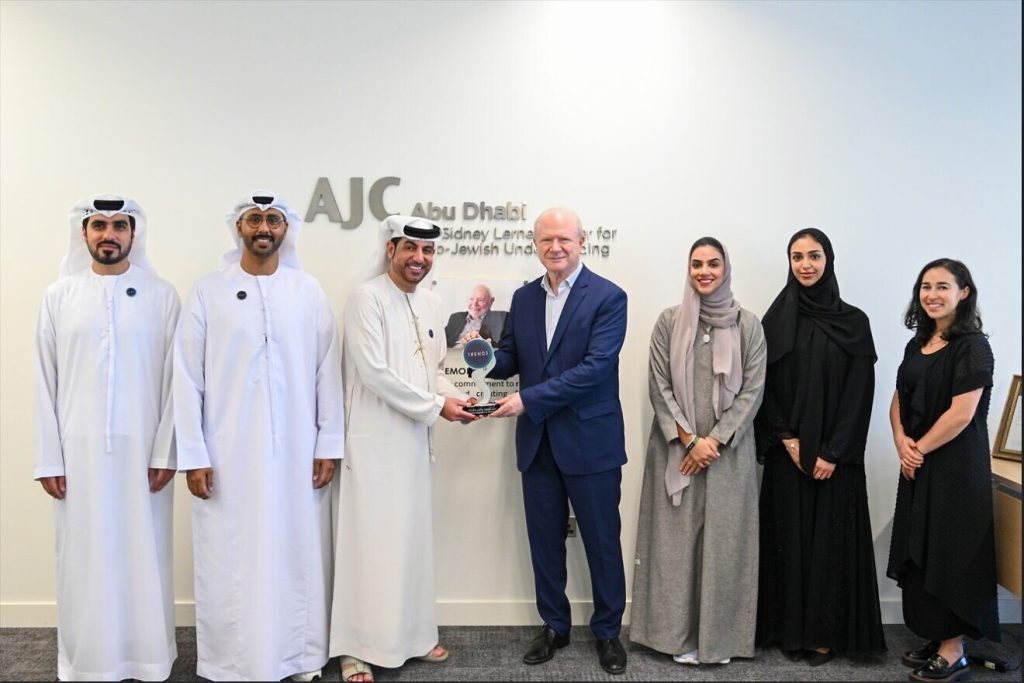
Abu Dhabi:The evolving partnership between Israel and the United Arab Emirates (UAE) continues to demonstrate remarkable resilience, even as the Middle East navigates shifting alliances, new rivalries, and ongoing conflicts. This enduring cooperation, initially forged under the historic Abraham Accords, appears to be entering a new phase of strategic significance during Donald Trump’s second presidency.
Observers note that the Abraham Accords, initially met with skepticism about their long-term viability, have surpassed expectations. Despite regional instability, the UAE and Israel have sustained their diplomatic, economic, and security ties, fostering a model of coexistence that many believe could inspire broader cooperation across the region.
Israeli-Emirati diplomatic relations have demonstrated remarkable resilience in the face of regional tensions, with recent high-level meetings signaling a commitment to maintaining ties forged through the Abraham Accords.
According to news report the January 7 meeting between Israeli Foreign Minister Gideon Sa’ar and his Emirati counterpart, Sheikh Abdullah bin Zayed Al Nahyan, marked the first ministerial-level engagement since the October 7, 2023 attacks. The encounter, which received prominent coverage in Emirati media, represented a significant step in maintaining the diplomatic bridge between the two nations during a period of regional upheaval.
Marc Sievers, inaugural director of the American Jewish Committee’s Arab-Jewish understanding center in Abu Dhabi and former U.S. envoy to Oman, emphasized the significance of this diplomatic milestone. “The reception by Sheikh Abdullah was clearly very warm and friendly,” Sievers noted, pointing to the extensive coverage by the UAE’s Ministry of Foreign Affairs and its Washington embassy as evidence of the Emirates’ commitment to the relationship.
The diplomatic engagement coincided with reports of potential Emirati involvement in post-war Gaza reconstruction efforts, timing that Sievers suggests was not coincidental. This development adds another layer to the UAE’s complex role as both a critic of certain Israeli military actions and a steadfast partner in regional stability efforts.
Unlike other Abraham Accords signatories, the UAE has maintained consistent diplomatic presence with Israel throughout recent tensions. The Israeli embassy in Abu Dhabi remained operational, with only a brief two-week period at the end of 2023 during which families were temporarily relocated. This continuity stands in marked contrast to situations in Bahrain and Morocco, where Israeli envoys returned home due to security concerns or diplomatic pressure.
The resilience of Israeli-Emirati relations extends beyond official diplomatic channels. Bilateral trade actually increased during the past year, and the Abrahamic Family House, which includes a synagogue, has seen renewed visitor interest. The American Jewish Committee has continued its activities in the UAE, albeit with reduced publicity, successfully hosting events such as an iftar during Ramadan even as regional tensions escalated.
Sievers dismisses criticism that the Abraham Accords failed because they didn’t prevent the October 7 attacks. “The next few months, and the next year or so, are critically important in terms of how to build on the accomplishments that have been achieved on the battlefield, to remake the politics of the region in a way that points toward cooperation instead of conflict,” he explained.
The Jewish community in the UAE, numbering between 2,000 to 3,000 people, has largely remained stable despite security challenges, including the tragic kidnapping and murder of Rabbi Zvi Kogan in November. Local authorities have responded by strengthening security measures and maintaining close communication with Jewish community leaders.
Even as the UAE has criticized certain aspects of Israel’s military operations, both nations have found ways to collaborate quietly, particularly in humanitarian efforts in Gaza. This pragmatic approach has helped maintain the diplomatic relationship while managing domestic sensitivities in both countries.
The preservation of Israeli-Emirati ties during this challenging period underscores what Emirati officials have consistently described as a “strategic decision” regarding normalization with Israel. As one senior Emirati official noted, “There was no going back on it. They were looking for the future, not toward the past.”
As President Donald Trump assumes office for a second term, there is growing speculation about the potential for an “Abraham Accords 2.0.” This expanded framework would aim to bring additional countries into the fold, building on the foundation laid by the original agreements.
Trump, a key architect of the Abraham Accords, has signaled his intent to strengthen existing partnerships and encourage more nations to normalize relations with Israel. Analysts suggest this could involve a renewed push for Saudi Arabia to join the accords, alongside initiatives to stabilize the region and foster economic integration.
The resilience of the Abraham Accords offers hope for a more interconnected and collaborative future.As the world watches, the sustained commitment of Israel and the UAE to their alliance may well serve as a blueprint for regional diplomacy, marking a new chapter in Middle East relations under the banner of Abraham Accords 2.0.